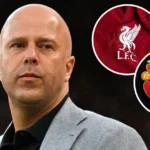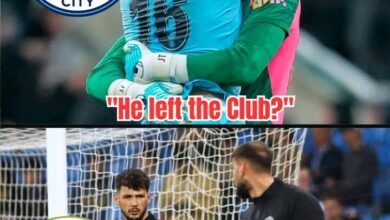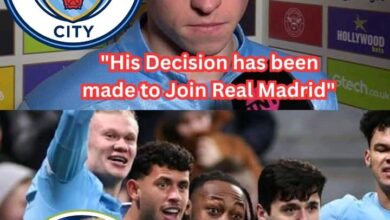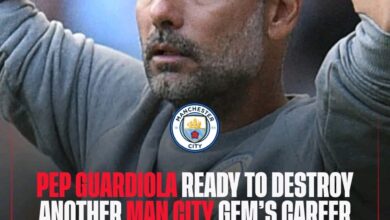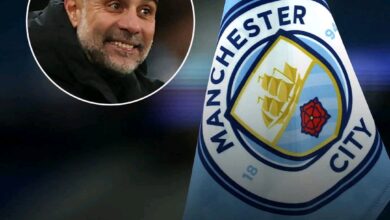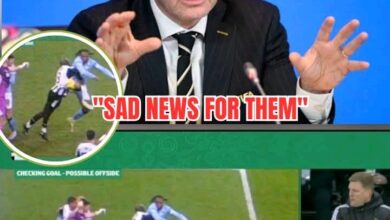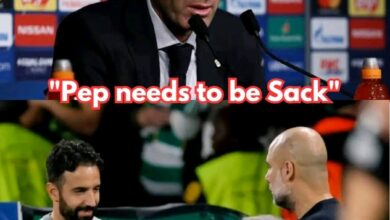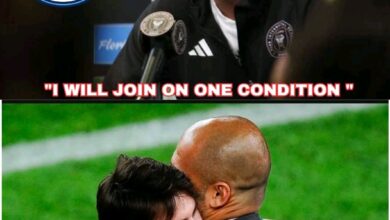
The summer transfer window is drawing to a close, and Newcastle United finds itself in a precarious position regarding its pursuit of defensive reinforcements. The club, under the management of Eddie Howe and the ownership of Saudi Arabia’s Public Investment Fund (PIF), has been engaged in a protracted negotiation process with Crystal Palace for the services of highly-rated England international defender Marc Guehi. However, as the clock ticks down on the transfer deadline, the prospects of securing Guehi’s signature appear to be diminishing rapidly.
Newcastle’s interest in Guehi has been well-documented throughout the summer. The young center-back has impressed greatly since joining Crystal Palace, earning himself a place in the England national team and attracting attention from several top clubs. For Newcastle, Guehi represented an ideal candidate to bolster their defensive line, combining youth, Premier League experience, and significant potential for further development.
The negotiations between Newcastle and Crystal Palace have been ongoing for several weeks, indicating the seriousness of Newcastle’s intent to secure Guehi’s services. However, despite protracted discussions, the two clubs have been unable to reach an agreement on the transfer fee. Newcastle’s most recent offer, reported to be in the region of £65 million including add-ons, fell short of Crystal Palace’s valuation. The London club is now said to be demanding £75 million for their prized asset, a figure that may prove prohibitive even for the cash-rich Magpies.
This impasse in negotiations has left Newcastle in a difficult position as the transfer window nears its conclusion. With less than 24 hours remaining before the deadline, the likelihood of completing such a complex and high-value transfer seems increasingly remote. The situation highlights the challenges faced by clubs in the current transfer market, where selling clubs, emboldened by the influx of money into the game, are able to hold firm on their valuations of key players.
In light of the difficulties in securing Guehi, an interesting development emerged that sheds light on Newcastle’s transfer strategy and the decision-making process at the club. Reports suggest that Chelsea, another Premier League club with significant financial resources, offered their center-back Axel Disasi to Newcastle for a fee of £38.5 million. This proposal presented an intriguing alternative for Newcastle, potentially offering a solution to their defensive recruitment needs at a considerably lower cost than the Guehi deal.
However, in a move that has raised eyebrows and sparked discussion among football pundits and fans alike, Newcastle manager Eddie Howe reportedly rejected the opportunity to bring Disasi to St. James’ Park. This decision, as reported by transfer journalist Dean Jones, appears to be rooted in Howe’s unwavering commitment to his original transfer targets and his vision for the team.
Jones’ comments to GiveMeSport provide insight into Howe’s thinking: “Newcastle were given chance to sign Disasi but Eddie Howe seems adamant he does not want him. His view on this is it was Marc Guehi or nothing, so even now throwing someone like Chalobah into the frame does not really fit with the elevation he felt he would be getting from the Guehi deal.”
This steadfast approach from Howe reveals much about the manager’s philosophy and the club’s transfer policy under the PIF ownership. It demonstrates a clear, focused strategy where specific targets are identified and pursued, rather than a more opportunistic approach of acquiring available players who may not perfectly fit the manager’s vision.
On one hand, this rigid adherence to a plan can be seen as admirable. It shows a level of planning and foresight that is often lacking in football, where short-term thinking and knee-jerk reactions can sometimes dominate. Howe’s insistence on Guehi suggests that he sees the Palace defender as a key piece in his long-term vision for Newcastle, someone who can significantly elevate the quality of the squad and contribute to the club’s ambitions of challenging at the top end of the Premier League.
Moreover, this approach aligns with the broader strategy that seems to be in place at Newcastle under the PIF ownership. Since the takeover, the club has generally avoided the type of scattergun recruitment that often follows sudden financial windfalls in football. Instead, there appears to be a more measured, strategic approach to team building, with a focus on players who can grow with the club and contribute to long-term success.
However, this inflexibility in the transfer market also carries risks. Football is a dynamic industry where opportunities can arise unexpectedly, and the ability to adapt quickly can be crucial. By dismissing alternatives like Disasi out of hand, Newcastle may be missing out on quality players who could strengthen the squad, albeit in a different way than originally envisioned.
Furthermore, the failure to secure Guehi, combined with the rejection of alternative options, could leave Newcastle short-handed in defense for the upcoming season. This is particularly concerning given the increased demands that will be placed on the squad due to their participation in the Champions League. The rigors of competing on multiple fronts require depth and quality throughout the squad, and any gaps in the team could be ruthlessly exposed at the highest level of European football.
The situation also raises questions about the balance of power and decision-making at Newcastle. While it’s clear that Howe has significant influence over transfer targets, it’s unusual for a manager to have such absolute say in recruitment matters, especially at a club with the financial muscle of Newcastle. This could suggest a high level of trust in Howe from the ownership, but it could also potentially lead to missed opportunities if alternative viewpoints are not given due consideration.
As the transfer window enters its final hours, Newcastle finds itself at a crossroads. The pursuit of Guehi seems to have reached an impasse, with Crystal Palace’s valuation potentially putting the player out of reach. The rejection of Disasi and potentially other alternatives leaves the club with limited options to strengthen their defense before the deadline.
This situation will undoubtedly put pressure on Howe and the existing squad. The manager’s decision to stick to his guns and pursue only his top targets will be scrutinized closely, especially if defensive frailties become apparent during the season. The increased expectations at Newcastle, fueled by their recent takeover and qualification for the Champions League, mean that any perceived shortcomings in squad building will be magnified.
Looking ahead, Newcastle may need to reassess their transfer strategy. While having a clear vision and specific targets is commendable, there needs to be a degree of flexibility to adapt to market realities and unexpected opportunities. The club may also need to consider whether they are willing to meet the inflated valuations that selling clubs are placing on their prime assets, or if they need to cast their net wider to find value in the market.
For Eddie Howe, this transfer saga represents a significant test of his management and his vision for Newcastle. If the team performs well despite missing out on key targets, it will vindicate his approach and strengthen his position. However, if defensive issues arise and the lack of reinforcements becomes apparent, questions may be asked about the wisdom of rejecting viable alternatives.
As the transfer window draws to a close, all eyes will be on Newcastle to see if any last-minute deals materialize. Whether they stick with their current squad or manage to pull off a surprise signing, the coming season will be crucial in determining whether their transfer strategy has been a success. For a club with ambitions as lofty as Newcastle’s, every decision in the transfer market carries significant weight, and the repercussions of this summer’s activities will be felt long after the window closes.




